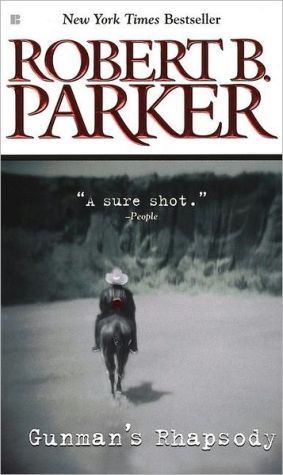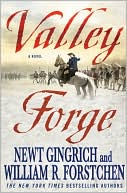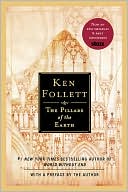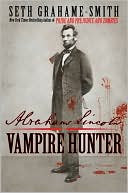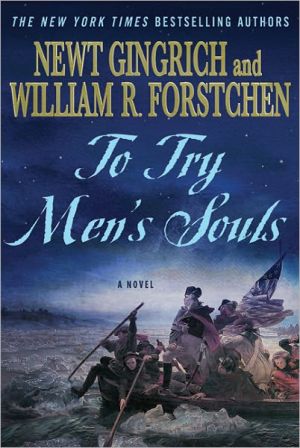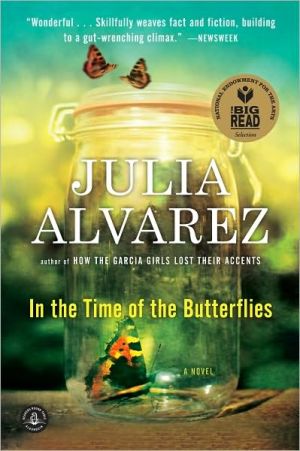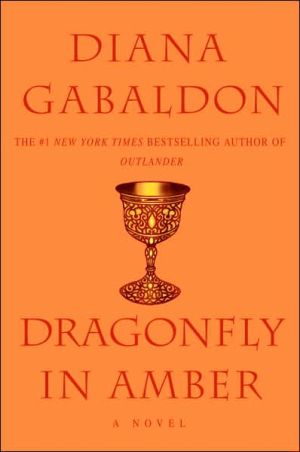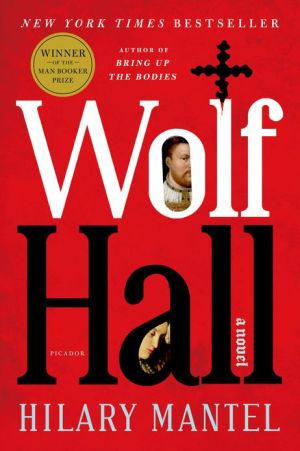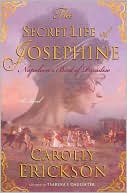Gunman's Rhapsody
Spenser creator Robert B. Parker turns his eye to the Old West with his stirring rendition of the legendary exploits of Wyatt Earp, Doc Holliday, the Clanton Gang, and the fateful gunfight at the O.K. Corral.
Search in google:
Robert Parker gives his fans the book he always longed to write - a brilliant and evocative novel set against the hard scrabble frontier life of the West, featuring Wyatt Earp. It is the winter of 1879, and Dodge city has lost its snap. Thirty-one-year-old Wyatt Earp, assistant city marshal, loads his wife and all they own into a wagon, and goes with two of his brothers and their women to Tombstone, Arizona, land of the silver mines. There Earp becomes deputy sheriff, meeting up with the likes of Doc Holiday, Clay Allison and Bat Masterson as well as finding the love of his life, showgirl Josie Marcus. While navigating the constantly shifting alliances of a largely lawless territory, Earp finds himself embroiled in a simmering feud with Johnny Behan, which ultimately erupts in deadly gunfire on a dusty street corner.New York Times Book Review - Allen BarraParker's strengths here, as in his crime novels, are plot and dialogue. In Gunman's Rhapsody he has a terrific ready-made story in the events that led to the gunfight at the O.K. Corral and its bloody aftermath of revenge, and he creates a spare Western vernacular that gets to the truth in a hurry.
Chapter One\ The road from the railhead in Benson ended with an uphill pull into Tombstone, and the horses were always lathered as they reached level ground and finished the trip on Allen Street in front of Wells Fargo. They were blowing hard when Bud Philpot tied the reins around the brake handle and climbed down to help the passengers out. Wyatt stayed up on the box holding the double-barreled 10-gauge shotgun that the company issued to all its messengers for the stage run. The in-town guards were issued twelves. When the money box was on the ground, Wyatt climbed down after it and followed as Philpot carried it into the office. Since he'd hired on as a shotgun messenger there had been no holdups, and when there had been holdups, before he took the job, they had always taken place on the road. Still, he saw little sense in being ready for no holdups, so he forced himself always to assume that one was about to happen.\ Wyatt rode the empty stage with Philpot on around to Sandy Bob's barn on the corner of Third Street. Then he got down and walked a block down to Fremont, where he and his brothers had been building houses. There were four of the houses done, including the one he lived in with Mattie, and another one under way.\ Virgil was there with Allie, sitting at the kitchen table drinking coffee. Virgil was five years older and a little thicker than Wyatt, but they looked alike and people sometimes mistook Wyatt for his brother. He was always pleased when they did.\ "Thank God," Mattie said when he came into the kitchen.\ She had on a high-necked dress and her hair was tight around her square face. Her cheekbones smudged with a red flush made her look a little feverish. Probably whiskey. Whiskey made her lively. Laudanum made her languid.\ "Safe at last," he said.\ "Don't laugh at me, Wyatt," Mattie said. "You know about Victorio leaving the reservation."\ "I heard," Wyatt said. "But I didn't see him on the road from Benson."\ "Oh, leave her be, Wyatt, you know the Apaches are real," Allie said. "People are coming in from Dragoon."\ "That so, Virg?"\ Virgil nodded. He held his coffee cup in both hands, elbows on the table, so that he had only to dip his head forward to drink some.\ "Everybody in Tombstone's worried. There's talk they'll attack the town," Mattie said.\ She spoke in a kind of singsong, like a girl telling someone her lesson.\ Wyatt broke the shotgun, took out the shells and put them in his pocket. He closed the shotgun and leaned its muzzle up against the door frame.\ "How many Apaches are out?" Wyatt said.\ "Clum says 'bout fifty."\ "How many armed men we got in Tombstone?" Wyatt said.\ Virgil dipped his head forward and drank some coffee.\ "More 'n fifty," he said.\ Wyatt nodded absently, looking past Mattie out the back window at the scrub growth and shaled gravel that spilled down the slope behind the house.\ "Well, I'm glad you're home safe," Mattie said and got up and walked to him and put her arms around him. He stood quietly while she did this. And when she put her face up he kissed her without much emphasis.\ "Go down the Oriental, Virg? Play a couple hands?"\ Virgil nodded. He put down his cup, stood up, took his hat off the table and put it on his head. Allie frowned at Virgil.\ "Maybe we'll just come along," Allie said. "Me and Mattie. See what the high life looks like."\ "No," Virgil said.\ "Why not?"\ "No place for ladies."\ "Ladies?" Allie said. "When did we get to be ladies?"\ "Since you married us," Wyatt said and opened the door.\ "I didn't marry no 'us,'" Allie said. "I married Virgil."\ Virgil grinned at her and took hold of her nose and gave it a little wiggle.\ "And a goddamned good thing you did," he said.\ Then he went out the door after Wyatt.\ They walked a block up to Allen Street. It was winter, and cold for the desert with the threat of snow making the air seem more like it had seemed in Illinois before a blizzard.\ "Kinda hard on Mattie," Virgil said.\ "I know."\ "She's doing the best she can," Virgil said.\ "So am I."\ They walked along Allen Street. You could see the breath of the horses tied in front of the saloons. The early evening swirl of cowboys and miners moved hurriedly, wrapped in big coats, hunched against the cold.\ "She ain't much," Virgil said.\ "No," Wyatt said, "she ain't."\ "Still, you took up with her."\ "Yep."\ Virgil put his left hand on Wyatt's shoulder for a moment, then they pushed into the Oriental where it was warm and bright and noisy.\ —From Gunman's Rhapsody, by Robert B. Parker. (c) June 2001 , G. P. Putnam's Sons. Used by permission.
\ From Barnes & NobleThe Barnes & Noble Review\ Much of Robert B. Parker's fiction -- his recent Spenser novel, Potshot, is a notable example -- has straddled the boundary between two traditional forms: the private-eye novel and the Western. Parker's latest, the spare, evocative Gunman's Rhapsody, represents his first attempt at a pure, unadulterated Western, moving from Boston and environs to Tombstone, Arizona and focusing on one of Spenser's true spiritual forebears: Wyatt Earp. \ Gunman's Rhapsody begins in 1879. Wyatt, whose exploits have already found their way into the dime novels of the period, has just arrived in Tombstone, accompanied by several of his brothers and his common-law wife, Mattie Blaylock. The Tombstone of this era is a semi-lawless boomtown located in the heart of the silver mine district. It also serves as a kind of crossroads, a meeting place for some of the iconic figures of the Old West, figures such as Johnny Ringo, Bat Masterson, Ike Clanton, Katie Elder, and the drunken, slightly demented gunfighter, Doc Holliday.\ A single romantic encounter dominates this rambling, almost plotless narrative: Wyatt's discovery of the love of his life: beautiful showgirl Josie Marcus, who happens to be engaged to Johnny Behan, the shady, politically connected Sheriff of Tombstone. Wyatt's affair with Josie -- which takes on an obsessive, almost mythical dimension -- forms the central element in an interlocking series of personal rivalries and political enmities that will culminate in the gunfight at the OK Corral, and in its bloody, extended aftermath.\ Parker's clean elegant style and essentially romantic sensibility prove perfectly suited to the peculiar material of this novel. Without a false note or wasted word, Parker recreates the ambiance of the West, bringing its saloons, jails, and gambling halls and its endless, wide-open vistas, to immediate, palpable life. He brings that same effortless authority to bear in describing the lives and motivations of violent, hard-edged men who live -- and sometimes die -- according to highly developed codes of personal behavior. The result is a fascinating historical digression that illuminates a piece of the American past while simultaneously illuminating the central concerns of Parker's large, constantly evolving body of work. (Bill Sheehan)\ Bill Sheehan reviews horror, suspense, and science fiction for Cemetery Dance, The New York Review of Science Fiction, and other publications. His book-length critical study of the fiction of Peter Straub, At the Foot of the Story Tree, has been published by Subterranean Press (www.subterraneanpress.com).\ \ \ \ \ \ Allen BarraParker's strengths here, as in his crime novels, are plot and dialogue. In Gunman's Rhapsody he has a terrific ready-made story in the events that led to the gunfight at the O.K. Corral and its bloody aftermath of revenge, and he creates a spare Western vernacular that gets to the truth in a hurry.\ — New York Times Book Review\ \ \ From The CriticsIt may be that every American writer thinks, at one time or another, about writing a Western. It should come as no surprise that Parker would write a Western, particularly because, in many important ways, that's what he's been doing for the last thirty years: Spenser, one of the writer's most successful characters, is a classic Western hero, albeit in a contemporary setting. But this one's not about Spenser. This time, Parker is writing about Wyatt Earp, who at thirty-one is moving with his family to Tombstone, Arizona, where the silver mines have made everyone in town (including the riffraff) a lot of money. Once there, Earp gets a job as the deputy sheriff, and the reader takes a ride through Tombstone's violent Golden Age. Appearances by Doc Holliday, Bat Masterson and Clay Allison cap off the star-studded cast. And it wouldn't be a proper Western without a climactic shoot-out in the middle of the main street, where justice prevails and the bad guys take a bullet. Parker's spare style is an easy fit for the story; before, he just had the costumes and the geography wrong.\ —Randy Michael Signor \ \ (Excerpted Review)\ \ \ \ \ Publishers WeeklyThis retelling of the famous rivalry between Wyatt Earp and the cowboys is a minimalist's dream, but it doesn't offer much in the way of innovation. Begley has the kind of folksy, but literate, head-scratching charm the farm boy who turns out to be smarter than he looks that would seem to make him a natural choice to read Parker's shot at adding something new to the OK Corral legend. And Begley does a valiant job of bringing Parker's deliberately spare prose and discreet dialogue to life. But other actors' visions of Earp are more convincing (such as Henry Fonda in My Darling Clementine and Kevin Costner and Kurt Russell in Wyatt Earp and Tombstone). It's not that this production is particularly flawed, but too many actors have played Earp in myriad versions of the same story for there to be much that's original or even interestingly retro in the Begley variation. On the other hand, if there are any fans of Parker's most famous creation (Boston PI Spenser) who don't know about the Earps, this audiobook could open their eyes. Based on the Putnam hardcover. (Nov. 2001) Copyright 2001 Cahners Business Information.\ \ \ \ \ Library JournalParker heads west to meet Wyatt Earp. Copyright 2001 Cahners Business Information.\ \
